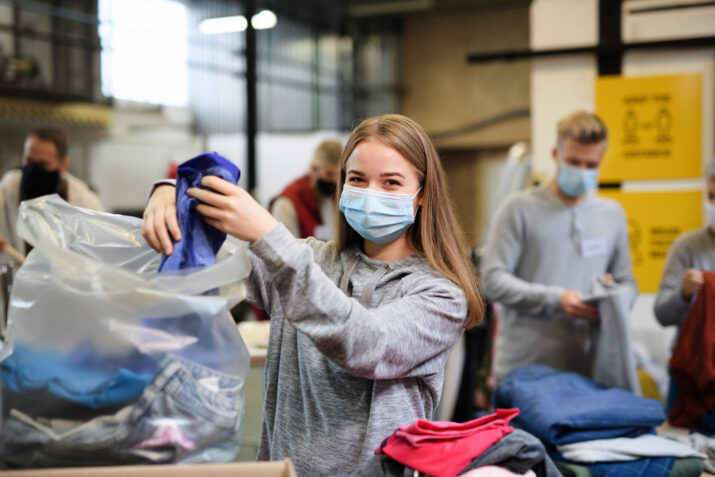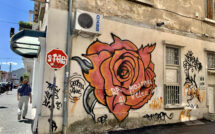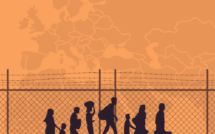
Ukrainian refugee women in Germany: Challenges of temporary protection and integration after three years of war

By Beatriks Rabinovych, Olha Lushankina, Gökce Yurdakul and Jonna Rock
More than three years have passed since Russia invaded Ukraine in February 2022. In response, the European Union swiftly activated the Temporary Protection Directive for the first time since its adoption in 2001. In March 2025, around 6.37 million displaced Ukrainians were registered across Europe. In Germany, the country with the largest number of registered refugees, there were around 1.2 million as of 31 May 2025 (UNHCR, 2025). Unlike refugees from Africa and the Middle East, for example, who often face prolonged asylum procedures, Ukrainians under temporary protection have immediate access to housing, childcare, language courses, and other services. However, the temporary nature of this status creates uncertainty about their future, complicating long-term planning.
In Germany, most Ukrainian refugees are women (62%), nearly half of whom (48%) have care responsibilities for children (Mediendienst Integration, 2025; Brücker et al. 2022). Statistics indicate that Ukrainian refugee-women to Germany have, on average, a very high level of education (Brücker et al. 2022). Despite this, many Ukrainians remain inadequately integrated into the German labor market. This is partly due to limited access to information and lengthy integration processes that fail to address specific challenges faced by single mothers and other vulnerable groups.
Upon arriving in Germany, post-2022 Ukrainian refugees often connected with Ukrainian or other post-Soviet individuals, volunteers, networks, and initiatives (Rock, 2025). These informal support systems have been crucial for navigating Germany’s complex and slow bureaucratic processes, offering valuable assistance to new arrivals. To better understand how these systemic challenges are experienced in everyday life, we conducted an interview-based research project with Ukrainian refugee women in Berlin in 2024. Their narratives shed light on the intersectional and structural complexities of temporary protection while caring for their children.
Because the recent arrival peak of Ukrainian refugees falls outside Germany’s regular asylum system, they encounter challenges distinct from those faced by regular asylum seekers. Unlike asylum seekers, who receive structured access to information through official channels such as refugee centers and accommodations, Ukrainian refugees often lack such organised support. Tetiana (pseudonym) highlights this issue, emphasizing the difficulties in obtaining clear guidance and resources in navigating Germany’s bureaucratic systems:
What is missing is a central source of information. Very often we literally find out by chance about things that we can get. This information is not widely available, and I wish it was. I’ve gotten about 80 per cent of my information from privately organised support groups. (Interview with Tetiana, Berlin, 2024).
This deficiency of the integration apparatus as regards access to information that Tetiana, and other Ukrainian refugees to Germany are confronted with has created a niche for them to establish informal networks and channels for information exchange online. While Germany’s administrators–old-school as they are–were still organising themselves on-site, the newly arrived refugees sought help and support online: countless Telegram channels and Facebook groups sprouted overnight so that important information about their survival in Germany could be exchanged at rapid pace. Veronica (pseudonym) reflects about how this online exchange helped her to find her foot in Berlin:
To some extent, we have already found such channels [of information from official sources]. People who came here earlier have often recorded short videos explaining how things work here. For example, they show how to choose products in the store, or how to park to avoid parking tickets, because not everyone understands the rules straight away. So, we organised ourselves and helped each other. (Interview with Veronica, Berlin, 2024).
Although this information exchange helped people like Veronica for quick and necessary information, they may not always be complete or correct. Fact-checking still requires Veronica’s time and effort, adding to the already enormous mental load of having fled from a war zone to a foreign country.
Intersectional challenges: Refugee and mother
The majority of Ukrainian refugees to Germany are women and almost half of them are responsible for childcare. This demographic composition creates a particular situation for both the refugee women themselves, who are usually engaged in single motherhood (this is because Ukrainian men are not allowed to leave Ukraine due to restrictions on men being mobilised for military service), and for the local institutions who are offering integration programmes for the women-refugees and their children. Due to already existing structural problems in German society, childcare and educational facilities are often overcrowded, but prejudices and the harsh structure of the German education system nipped integration efforts in the bud. Ukrainian mothers needed to demonstrate resilience and be persistent about what educational efforts and goals to pursue. For Olena (pseudonym) her children’s education came first:
When we arrived here, it was very important to me that they [my children] go to school. I told the interpreter this and she asked me about my criteria and wishes for the school. And I already knew that there were gymnasiums [university-track high schools] and other schools here [Realschulen and Hauptschulen, which do not typically provide an opportunity for university education after graduation], and I wanted my son to go to a gymnasium. They [the German official] said ‘No’ but I replied ‘Yes’… Then they said: ‘He won’t make it; he can’t speak German’… And obviously, we haven’t fully learnt the language yet, but I told them ‘If he doesn’t make it, then we’ll think about it some more – in the meantime, he should attend a gymnasium… so we did it that way.” (Interview with Olena, 2024, Berlin)
Olena’s statement shows the unpreparedness of German school authorities. The integration programmes offered by Germany’s government were targeting adult Ukrainian refugees. However, Ukrainian refugee youth who arrived with their mothers or as unaccompanied minors were falling between the bureaucratic cracks. This is particularly problematic for teenage boys, as a permanent return to Ukraine can be fatal for them due to the regulations imposed by the martial law in Ukraine.
Moreover, temporary protection for adults and their minor children is accompanied by uncertainty. While it allows movement between Ukraine and Germany, it must be renewed annually. This uncertainty, combined with the lack of official information about available options and the burden on mothers to make decisions about their children’s educational path (in a country where such a decision is very important for the prospect of further higher education), becomes a constant source of anxiety for Ukrainian refugee mothers. The interview quote below reflects Angelina’s (pseudonym) deep concerns about the uncertain future her children face as Ukrainian refugees in Germany:
My sons are in the 9th and 10th grade, and I’m worried about their future. My older son will graduate from secondary school next year and I’m unsure what will happen next. The state and the education system don’t yet have clear guidelines on how to proceed with Ukrainian children here. Overall, we have [temporary protection status] until March 2025…. Of course, I understand that some steps are necessary. But it’s not just about people like me, but also about young people. After two years [of living here], I don’t see any clear prospects for my children. I know what I must do, but what should they [my three children] do? Sometimes they feel insecure and unsure about whether they can stay here and study or not.” (Interview with Angelina, Berlin, 2024)
While Angelina reflects on broader challenges faced by refugee children, including disrupted education, the parallel processes of Ukrainian mother’s own integration progress is another source of emotional stress. Mothers naturally wish for their children to adapt to the new German environment, while they simultaneously must attend the compulsory German language courses which would allow them increased access to possibilities for work, have regular voluntary legal consultations, attend community-building activities, and much more (Rock & Yanaşmayan, 2024). None of these activities guarantees successful integration into German society, especially into the job market. And in the case of mothers, all these activities take place on top of their care responsibilities. Ukrainian refugee women, as exemplified in the case of Olena (pseudonym), often feel like they must opt for a trade-off at the cost of their involvement in their children’s lives to be able to invest in at least some sort of long-term perspective in the country, for themselves as well as their dependents.
I try not to put them [my children] under pressure when choosing their future… In Ukraine, I was more involved in their lives than when we came here. I simply don’t have time to look after them intensively, because I must concentrate on my own integration. That’s why I told them that everyone is responsible for themselves now. If they need help, I’m there. If they need tutoring, we’ll find it. If they need books or materials, I’ll get them. If they want to pursue a career, I’ll support them doing so. (Interview with Olena, Berlin, 2024)
Navigating motherhood amidst juggling the labour required to learn German alongside other integration efforts, coupled with the trauma Ukrainian refugee women have suffered because of war and flight, does not make being an exiled woman from Ukraine stranded in Germany a straightforward matter.
While Ukrainian refugees in Germany have demonstrated resilience and resourcefulness in navigating the challenges of displacement, their integration remains hindered by systemic gaps in support, bureaucratic complexities, and the uncertainty of temporary protection status. As many large scale surveys and qualitative research show, addressing these issues with more inclusive policies and tailored programs is essential to ensure their long-term stability and meaningful participation in German society (e.g. BAMF, 2023).
Acknowledgements: This project was funded by the Berlin University Alliance’s Open Humboldt Freiräume Award to Prof. Dr. Gökce Yurdakul in Summer Semester 2024. All interviews were conducted and translated by Beatriks Rabinovych.
Sources:
Brücker, H., Ette, A., Grabka, M. M., Kosyakova, Y., Niehues, W., Rother, N., Spieß, C. K., Zinn, S., Bujard, M., Cardozo, A., Cumming, P., Décieux, J. P., Gatskova, K., Maddox, A., Milewski, N., Naderi, R., Sauer, L., Schmitz, S., Schwanhäuser, S., Siegert, M. and Tanis, K. (2022, December). IAB-BiB-BAMF-SOEP Study. Geflüchtete aus der Ukraine in Deutschland: Flucht, Ankunft und Leben. Retrieved March 26, 2025, from https://doku.iab.de/forschungsbericht/2022/fb2422.pdf.
Bundesamt für Migration und Flüchtlinge (BAMF). (2023). Ukrainian refugees: Nearly half intend to stay in Germany in the longer term. Retrieved March 26, 2025, from https://www.bamf.de/SharedDocs/Meldungen/EN/2023/230725-am-ukr-projekt-zweite-welle.html?nn=285460.
Mediendienst Integration. (2025, June). Flüchtlinge aus der Ukraine. Retrieved March 26, 2025, from https://mediendienst-integration.de/migration/flucht-asyl/ukrainische-fluechtlinge.html.
Rock, Jonna (2025). Perspectives on Refugeehood and Motherhood: Germany-Based Ukrainians’ Life Aspirations over Time. Nationalities Papers, 2025, 1-19. DOI: https://doi.org/10.1017/nps.2024.99
Rock, Jonna, and Yanaşmayan, Zeynep (2024). Motherhood on the move: forced migrant women from Ukraine. Journal of Refugee Studies, feae084, https://doi.org/10.1093/jrs/feae084.
United Nations High Commissioner for Refugees (UNHCR). (2025, March). Ukraine Refugee Situation. Retrieved March 26, 2025, from https://data.unhcr.org/en/situations/ukraine.
Ünsal, Gizem, Fabiańczyk, E., and Lushankina, Olha. (2024, May). Geflüchtete aus der Ukraine in Berlin und Brandenburg. Retrieved March 26, 2025, from https://minor-kontor.de/ukraine-in-berlin-und-brandenburg/.
Author bios:
Beatriks Rabinovych is an MA student in Rehabilitation Pedagogy at Humboldt-Universität zu Berlin. Since 2022, she has been working as a job coach for Ukrainian refugees and as a social-pedagogical assistant in integration courses. Her academic and professional interests lie in the fields of forced migration, disability, labor market integration, and the effects of displacement on family structures. She contributed to her first publication as part of a research project conducted during her research internship. In her current master’s thesis, she explores how forced migration shapes family roles and dynamics in the context of integration processes.
Olha Lushankina is an MA Sociology student at Freie Universität Berlin and a student employee at Minor (2022-today). Over the past three years she has contributed to multiple publications at Minor, mainly on the topics of migration. This includes working papers on the labour market integration of Ukrainian refugees, integration of EU immigrants into German VET as well as on Migrant-Gender-Pay-Gap in Berlin. More recently Lushankina has ventured beyond her core area of quantitative migration studies and started to explore theories of institutions as well as various topics relating to Central and Eastern Europe.
Gökce Yurdakul is Georg Simmel Professor of Diversity and Social Conflict at the Humboldt-Universität zu Berlin. Previously, she was the Director of the Department of Social Sciences at her university (2019-21) and the Director of the Berlin Institute of Migration and Integration Research (BIM, 2022-24). Her research and teaching areas are gender, immigration, and citizenship. Her research on Belonging for Single Migrant Men has been funded by ERC Advanced Grant in 2025. Yurdakul is currently co-editing the Oxford Handbook on Intersectional Approach to Migration, Gender, and Sexuality (with Jean Beaman, Liza Mügge, Sarah Scuzzarello and Sirijit Sunanta), scheduled to be published in 2026.
Jonna Rock is a researcher in the Migration Department at the DeZIM Institute. She has previously conducted research on post-Soviet migration to Germany as a Sylke Tempel Fellow of the Future Forum and as part of the project “The Course of (Hi)Stories” of the Minor. Rock’s research lies at the nexus of political and social history, specialising in the intersections between (forced) migration, racialised, and gendered processes. She is the author of “Intergenerational Memory and Language of the Sarajevo Sephardim” (Palgrave Macmillan, 2019) and of several journal articles, book chapters, and working papers, including in Nationalities Papers, Journal of Refugee Studies and Osteuropa.
Published on July 8, 2025.




